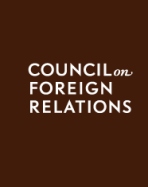 Interviewee: Mohammad Ayatollahi Tabaar
Interviewee: Mohammad Ayatollahi Tabaar
Interviewer: Zachary Laub
When Iranians elect a new parliament and Assembly of Experts on Feb. 26, they will find their choices circumscribed: nearly all the reformist candidates and many pragmatists were disqualified. “The elections are not free and fair,” but even so they are important indicators of trends among powerful factions, says Mohammad Ayatollahi Tabaar, a scholar of Iranian politics at Texas A&M University. Reformist leaders, he says, are urging Iranian voters to come out to block the most hard-line candidates. Supreme Leader Ali Khameini, too, is urging high turnout to demonstrate that “despite all the factional rivalries in Iran, the regime as a whole has popular legitimacy,” Tabaar says.
What is the prevailing mood among voters?
Polls in Iran tend to be unreliable and elections are unpredictable. Even the supreme leader, with all the means that he has to control the process, cannot always predict the outcome. The elections are not free and fair, but despite all the constraints there are ways for the reformists, pragmatists, and even those who don’t believe in the nature of the system to outmaneuver the establishment. The conservative leadership is worried about what it calls “Western infiltration” of the election.
The official website of the supreme leader, Ayatollah Ali Khamenei, has published his election-related ordinances and fatwas declaring voting a religious obligation and asserting that women do not need to get their husbands’ permission to participate in the election. He has even asked those who don’t believe in the Islamic Republic to vote, because according to him, at least the government provides security. He first made this appeal for turnout in 2013; it had been unprecedented. He is essentially saying: “compare us to Iraq, Syria, Libya, Yemen. If you don’t vote, and we’re undermined, the regime could disintegrate the way those countries have.”
There is a sense of desperation in this appeal. He bitterly remembers what happened in Iran during the Green Movement, in 2009, and he has seen what happened in the Arab world during the Arab uprisings. He wants to show the Americans and his increasingly aggressive Saudi rivals that despite all the factional rivalries in Iran, the regime as a whole has popular legitimacy.
The article's full-text is available here.











